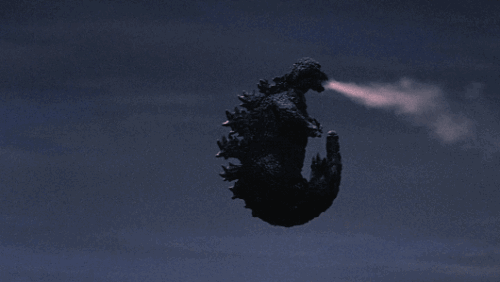Louise Michel, born on this day in 1830, was a French anarchist, feminist, educator, author, and militant leader of the Paris Commune.
Born in 1830 as an illegitimate daughter and raised by her grandparents, Louise Michel worked as a schoolteacher before revolution came to Paris, and, in 1865, opened a school dedicated to methods of progressive education.
There, Michel came into contact with radical thinkers such as Jules Vallès and Auguste Blanqui, and was concerned about the impoverishment of those on the margins of French society. In 1869, she was one of the founding members of the "Society for the Demand of Civil Rights for Women", focused on improving girls' education.
In 1870, war broke out between France and the Empire of Prussia. The war quickly ended in defeat for France, and, the following March, discontented members of the National Guard mutinied against the new national government in Paris, marking the beginning of the working class uprising known as the Paris Commune.
Michel joined the rebellion and was elected head of the Montmartre Women's Vigilance Committee, playing an important role in the provisional revolutionary administration. She had a romantic relationship with Théophile Ferré, a senior member of the Commune's Committee of Public Safety.
Michel personally fought on the front lines at the barricades, also organizing ambulance stations to transport the wounded. She expressed a willingness to sacrifice herself for the sake of revolution, stating "I like the smell of gunpowder, grapeshot flying through the air, but above all, I'm devoted to the Revolution."
Michel survived the fall of the Commune and was brought to trial in December 1871. She dared the judges to sentence her to death, saying "It seems that every heart that beats for freedom has no other right than a bit of lead, so I claim mine!"
Unlike Ferré, who was executed, she was instead punished by deportation to a penal settlement in the French colony of New Caledonia in the Pacific Ocean.
In New Caledonia, she became acquainted with the indigenous Kanak people, and took an interest in their culture and language, later supporting them during an 1878 revolt against French rule.
Michel also befriended Nathalie Lemel, another exiled figure from the Commune, and became an explicit anarchist under her influence. In 1880, amnesty was granted to former Communards, and Michel returned to Paris, where she was greeted as a hero by the downtrodden of the city and resumed her revolutionary activity.
Michel later moved to London for five years, where she ran a school for children of political refugees, and became a famed speaker across Europe, meeting figures such as the Pankhurst sisters, Peter Kropotkin, and Emma Goldman.
In 1904, Michel embarked on an anti-colonial speaking tour in French Algeria, before falling ill shortly after. She died in Marseille on January 9th, 1905 at the age of 74. Her funeral was attended by over 100,000 people, receiving delegations from socialist and anarchist groups all across Europe.
Today, Michel remains one of the most famous icons of the Paris Commune and is regarded as a pioneer of anarcha-feminism.
-
Louise Michel: a leading light and feminist figure in the Paris Commune
-
Louise Michel: the revolutionary woman who led the Paris Commune
Megathreads and spaces to hang out:
- 📀 Come listen to music and Watch movies with your fellow Hexbears nerd, in Cy.tube
- 🔥 Read and talk about a current topics in the News Megathread
- ⚔ Come talk in the New Weekly PoC thread
- ✨ Talk with fellow Trans comrades in the New Weekly Trans thread
reminders:
- 💚 You nerds can join specific comms to see posts about all sorts of topics
- 💙 Hexbear’s algorithm prioritizes comments over upbears
- 💜 Sorting by new you nerd
- 🌈 If you ever want to make your own megathread, you can reserve a spot here nerd
- 🐶 Join the unofficial Hexbear-adjacent Mastodon instance toots.matapacos.dog
Links To Resources (Aid and Theory):
Aid:
Theory:


The violence in the fallout show is too much. My partner, who liked the story and visuals, had to turn it off because of how chunky, close-up, and repetitive the gore was. I know the premise of the show is nuclear apocalypse, but it's a little bloody, right?
Chumky close up and repetitive gore has been a Fallout mainstay since 2008. The first 2 games would've had it if graphics were there yet.
Nah, it goes all the way back. The death animations in the original back in 97 were absurdly over the top. Plasma weapons would melt you in to a pile of green goo. The "bloody mess" perk would always play the most extreme death animation.
There's that mandatory scene in Fallout 2 where a super mutant shoots some farmer to pieces with a machine gun.
The alien laser one where the persons skins burns and falls off, while their skeleton stands for a few seconds is seared in my memory.
It's pretty brutal, but not really much worse than what you get in various horror/slasher movies if you watch those. I don't mind ultraviolence personally; I just dislike torture porn (which is its own whole genre, really).
i felt very similar and had to grin and bear it through most of it because I was still enjoying the story a lot. i did love the non-cg monsters tho!
It's something from the game series. Gore and violence were always integral to Fallout in all its iterations and imo it would be a vastly lesser experience without it. It's a commentary on how violent American westerns of the 50s were but cranked up to be goofy.
It is repetitive though, I wish they would have more diverse deaths other than body part being squished or penetrated.